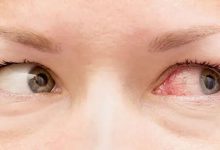Obsessive-compulsive disorder (OCD) is a mental health disorder characterized by intrusive, unwanted thoughts (obsessions) and repetitive behaviors or mental acts (compulsions) that a person feels compelled to perform in response to these obsessions. OCD can cause significant distress and disruption in an individual’s life, and early identification and treatment is crucial for managing the disorder. In this essay, we will discuss the early signs of OCD, including common symptoms and behaviors that may indicate the onset of the disorder.
The Problem with Masking ADHD and Autism (burnout, etc.)
One of the early signs of OCD is the presence of obsessions. Obsessions are persistent and repetitive thoughts, images, or impulses that are unwanted and intrusive. Individuals with OCD may experience intrusive thoughts about contamination, harm, or other fears that can cause significant anxiety and distress. For example, a person with OCD may experience intrusive thoughts about harming a loved one, or about being contaminated by germs. These thoughts are often accompanied by a strong urge to perform a specific behavior, such as repeated hand washing, in order to reduce anxiety and prevent the feared outcome.
Another early sign of OCD is the presence of compulsions. Compulsions are repetitive behaviors or mental acts that an individual performs in response to their obsessions. Compulsions are performed in an attempt to reduce anxiety and prevent the feared outcome, but they are not logically connected to the obsession. For example, a person with OCD may have an obsession about being contaminated by germs and perform a compulsion of repeated hand washing.
One common manifestation of OCD is repetitive checking behaviors, such as repeatedly checking to see if the door is locked or the stove is off. People with OCD may also have repetitive counting behaviors, such as counting objects or steps. They may also perform repetitive mental acts, such as repeating phrases or prayers, in response to their obsessions. These compulsions can be time-consuming and can interfere with daily activities and responsibilities.
Another early sign of OCD is the presence of excessive worry about making mistakes or causing harm. This can manifest as a fear of making mistakes at work or in social situations, and can cause significant anxiety and distress. People with OCD may also experience a strong need for symmetry or order in their environment, which can cause them to repeatedly rearrange objects or spend excessive time organizing their belongings.
Individuals with OCD may also experience excessive doubts and indecisiveness. This can cause them to repeatedly seek reassurance from others, or to spend excessive amounts of time making decisions. For example, a person with OCD may struggle with deciding what to wear each day and may repeatedly change their clothes or seek reassurance from others about their appearance.
It is important to note that not all individuals with OCD experience all of these symptoms, and the presence of these symptoms does not necessarily mean that a person has OCD. However, if an individual experiences persistent and intrusive thoughts and repetitive behaviors that cause significant anxiety and disruption in their life, they should seek help from a mental health professional.
Early identification and treatment of OCD can greatly improve an individual’s quality of life and reduce the severity of symptoms. Treatment for OCD often includes a combination of therapy, such as cognitive behavioral therapy (CBT), and medication, such as selective serotonin reuptake inhibitors (SSRIs). In therapy, individuals work with a mental health professional to identify the underlying causes of their obsessions and compulsions, and to develop strategies for managing their symptoms.
In addition to therapy and medication, there are also several self-help strategies that can help individuals manage their OCD symptoms. These strategies include practicing relaxation techniques, such as deep breathing and mindfulness, engaging in physical activity, and developing a strong support network.
obsessions and repetitive compulsions. Early identification and treatment of OCD can greatly improve an individual’s quality of life and reduce the severity of symptoms. The early signs of OCD include persistent and intrusive thoughts, repetitive behaviors or mental acts, excessive worry about making mistakes or causing harm, excessive doubts and indecisiveness, and repetitive checking behaviors.
If you or someone you know experiences any of these symptoms, it is important to seek help from a mental health professional. With the right treatment and support, individuals with OCD can learn to manage their symptoms and improve their quality of life. Remember, seeking help is a sign of strength, and taking control of your mental health is an important step towards a fulfilling and meaningful life.


